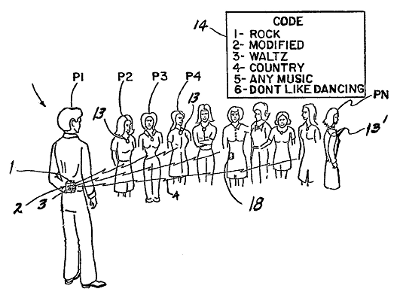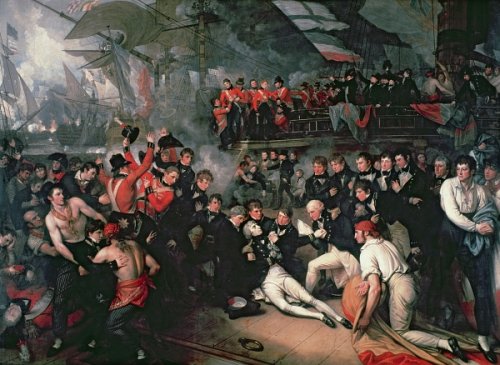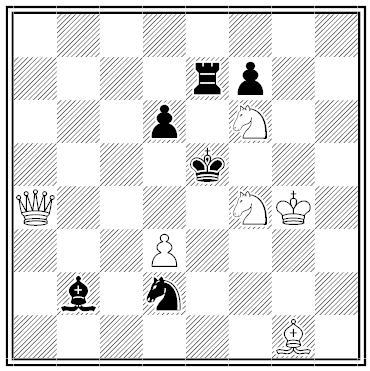
Carlisle H. Dickson’s “interpersonal-introduction signalling system,” patented in 1979, takes some of the pain out of the singles scene. Each person at a gathering carries a transceiver encoded with his or her own characteristics and preferences. So, for example, a woman can program her receiver to ignore every message except “I am a male, I want to dance with you, my music preference is hard rock.” When that signal is received, her receiver signals that the man can approach “with confidence not only of mutual interest, but of receptive mood.”
At this point the man doesn’t know exactly who or where she is, only that there’s a (minimally) compatible woman somewhere in the crowd. He begins to home in her using something like a Geiger counter, and this gives her time to spot him and change her mind — “at any time she may switch off her receiver, transmitter or both.”
“In a particularly novel construction, the apparatus may be further provided with a decoy means such that if the receiving party decides not to meet, the apparatus can be switched to create a false signal, such as the reversing of the characteristic created to assist the parties approaching each other.”





